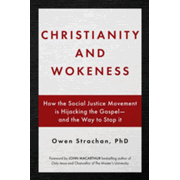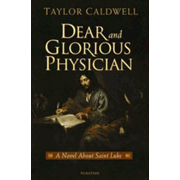THE GOSPEL for the Eleventh Sunday after Pentecost speaks
to us of healing. We read about the gracious deeds of Jesus, the Word of God according
to Saint Luke…
Now he (Jesus) was
teaching in one of the synagogues on the sabbath. And there was a woman who had
had a spirit of infirmity for eighteen years; she was bent over and could not
fully straighten herself. And when Jesus saw her, he called her and said to
her, "Woman, you are freed from your infirmity." And he laid his
hands upon her, and immediately she was made straight, and she praised
God.
But the ruler of the synagogue, indignant
because Jesus had healed on the sabbath, said to the people, "There are
six days on which work ought to be done; come on those days and be healed, and
not on the sabbath day."
Then the Lord answered him, "You
hypocrites! Does not each of you on the sabbath untie his ox or his ass from
the manger, and lead it away to water it? And ought not this woman, a daughter
of Abraham whom Satan bound for eighteen years, be loosed from this bond on the
sabbath day?"
As he said this, all his adversaries were put
to shame; and all the people rejoiced at all the glorious things that were done
by him. (Luke 13:10-17)
 |
Abolishing Abortion: How You Can Play a Part in Ending the Greatest Evil of Our Day - eBook By Rev. Frank Pavone |
No Side Job!
Instead of what seems
to be a simple story about Jesus’ healing power, we find a dramatic prophecy.
Without request, one day while teaching in a synagogue and on
the way to the cross in Jerusalem, Jesus stopped for a moment to heal a long-suffered
illness. He graciously reached out and healed even one who society had long deemed
as having little value.
You see, our Lord graciously
healed a woman who was considered by many in that religious gathering to be a
second class citizen. She was a woman who society deemed as devalued “property”. Being
ill for eighteen years, she likely suffered a much, much lowered “property value”…
lower than any of the other women traditionally told to sit in the back of the
worship space. Because of her persistent illness, she was likely banned completely from
Jewish religious gatherings.
Nearly distracting
from this healing miracle, however, was that Jesus did his healing work on the
Sabbath. To the leader of the synagogue, his act seemed to override the traditional
mandate toward that restful interval clearly recorded in scripture,
“Six days you shall
labor, and do all your work; but the seventh day is a sabbath to the Lord your
God; in it you shall not do any work, you, or your son, or your daughter, your
manservant, or your maidservant, or your cattle, or the sojourner who is within
your gates…” (Exodus 20:9-10)
We know that healing was regularly
done by Jesus. Those who are familiar with scripture know that the gospels record multiple witnesses about healing done by our Lord. Some occurred on the
Sabbath, (see examples of Matthew 12:11-12, Luke 6:6-11). Indeed, Jesus offered many traditional examples from Hebraic Torah in his ministry to justify his actions. These stated exceptions to the Law, and thus firmly established ground for such necessary
acts of grace to be accomplished by him even during the Sabbath.
As we of the Church consider this particular event, however, we might allude to the claim
that this woman’s malady and delayed treatment could have been rightly blamed
on her own collusion with the power of Satan and evil. We might claim along with others that she or
her forbears, and more like her... must be possessed of demons. We may point out that she may have been accused of participating in persistent evil.
Some of us might say that since evil and its power do not cease assailing, we are called to cite
the modern maxim, “What goes around comes around!”. Subsequently, we raise that some persons just deserve their woe-filled station in life. But consider that by thinking these things, we are
sinfully convicted of judging. We wrongly condone the withholding of graceful healing in the same way
as the ruler of the synagogue. We delay the application of love.
Subsequently, I hold
up this example of scripture before you and claim that God makes healing of body, mind and spirit immediately available through Christ Jesus. Condemnations fall upon us, therefore, for our unbelief. Sadly, we too restrict the application of
healing prayers made for needful persons on any day… or at any time.
 |
Theology of the Cross for the 21st Century |
Singled Out?
If we dare venture that this example was offered for good reason by Luke to
his churches, we find it had a precise meaning and purpose for those within his community. The
text opened a prophetic witness for our Lord’s people back then… and thus comes to us as well today... by
power of the Holy Spirit.
Consider this thought! If the
ailing and unnamed Hebrew woman represented more than her own personage to Luke, and his readers,
the text also carries a pertinent message across the centuries to us. I offer this opinion with foundation,
in that we are called to note that the woman being healed was exampled in
scripture… without being named! Yet the number of years in her suffering was precisely
published. I thus believe that this difference was deliberately scored. The
vagueness of the one attribute, makes the number eighteen literally jump out to
us from the Word! She represents more than herself to the whole Church for all seasons.
The reason I think
is clear. If we estimate as many scholars do, that this text was written about.
85AD, we find that the years of her illness correspond backward in time to the
heavy footfall of Roman rule upon the rebellious Jewish people of Israel. Looking back, we
today thus study the historical record describing the encircling and fall of those Jewish
peoples... in Jerusalem and at Masada.
Based upon this dating and history, let me offer to you that the
woman then represents the early Church, emerging from the wounds of several decades of both Roman and Jewish persecution, The question raised here is therefore… “Does the woman who
was bent from long afflictions, a victim both to internally distorted religious
law and external worldly powers.., represent more than herself in Luke? I do think
so.
 |
Christianity and Wokeness By Owen Strachan |
Additionally we might ponder, “Does
she represent the illness in faith of the Jews during the period after the fall of
Jerusalem and Masada? Is she representative of those Jewish Christians who needed to receive a healing from
our Lord… a healing that exists beyond human understanding? If so, I further ask, “Could
this occasion noted represent a healing given to the people of God in Christ Jesus, one
that reaches past them, far across time and place… to reach far beyond the eighteen
years that the woman suffered… so that we ourselves may be wonderfully healed similar
to the wondrous occurrence on that gracious day?” Again.., I believe so.
Consider with me that given this outlook.., we today may take from this lesson an occasion of great healing
available for our own churches and lives. Surely, we hear how this healed “daughter of Abraham”, described by
Luke, became accepted and renewed into the community of faith. The text subsequently relates that we then, as represented by her... are
now accepted as the adopted of Abraham. We exist faithfully in like station to the woman who was ill for so long and shutout from the congregation of faithful followers.
We read therefore
that Jesus may yet call to us amid any year, month, week, or day and heal us. He most
certainly is said to arrive during our religious attendance on Sabbath… so that we may be
healed by God and restored to the kingdom. Surely through the power of the Holy Spirit, God does a great healing
work at that particular time through his Son.
You see, during our worship we receive healing
forgiveness. As well, we of the Church are sustained through weariness, being
fed gracefully at the holy table. Therefore as we gather
on any Sabbath to do the right work (liturgia) of the people of God, is it not
true that we truly by the Holy Spirit overcome our illness in faith… but not
by our religious works… but rather by that which is freely given to us by our healing Lord?
 |
Dear and Glorious Physician By Taylor Caldwell |
You see, our Lord shall
not pass by without healing us. Have we not been traditionally fed the body and blood of the same Lord Jesus who gave of himself so that we may be made whole? This is the
empowering message of Luke written to congregations that lived in a time of illness. The message was declared when persecutions
and sicknesses of the world heavily burdened their proclamation. The message
came to those churches at a time when Christians were considered as impure, and
were shunned from the parent synagogue communities. I contend, therefore, that just as their path
was spurned at the turn of the first century, so it is even for us! Amid
societal rejections caused by our faith and its expression in a world and culture that worships many
competing gods, let us simply arise on any day... including Sunday... and say “Come Lord Jesus!”
Indeed... let us pray
that we may be called before Him to become witnesses of His love.
“Lord… just say the Word and we shall be healed!”



No comments:
Post a Comment